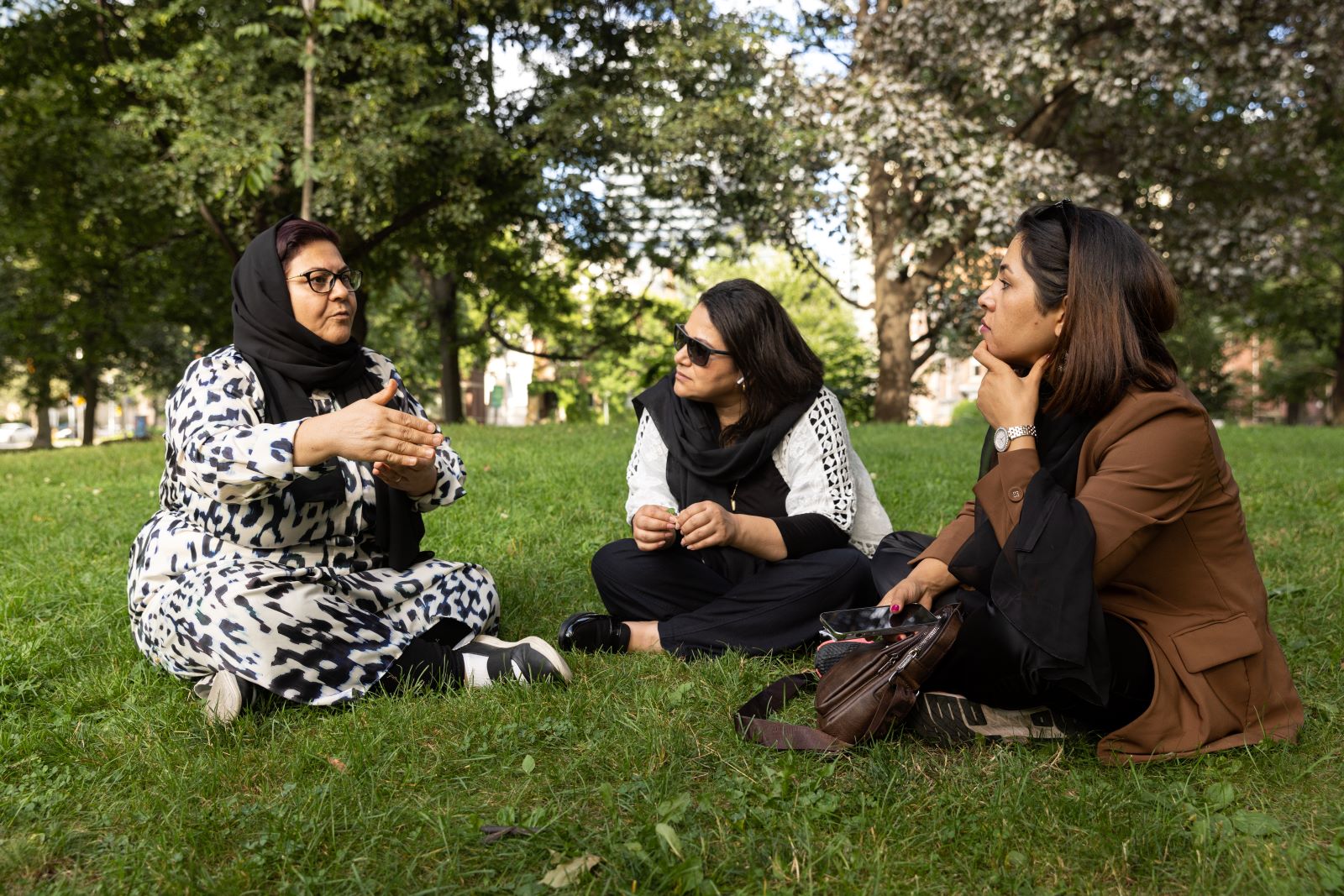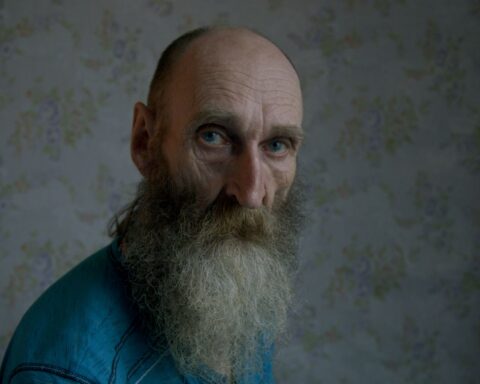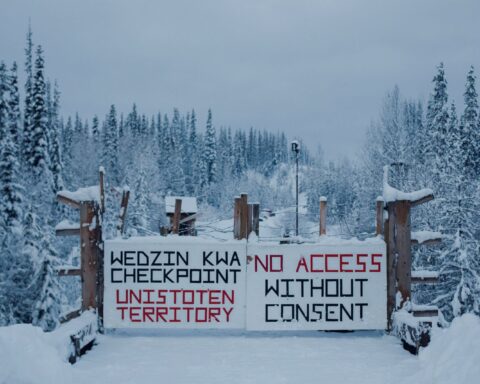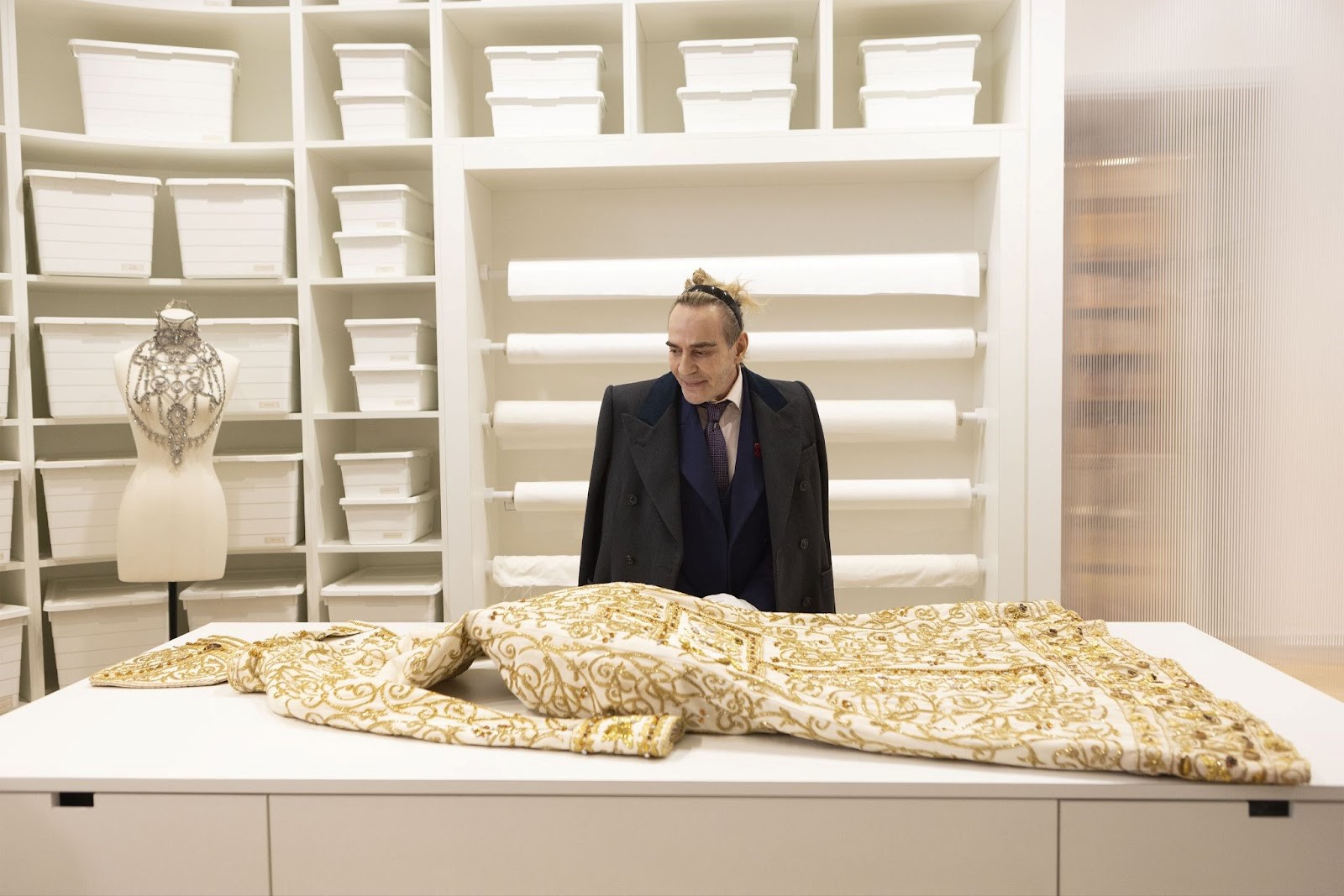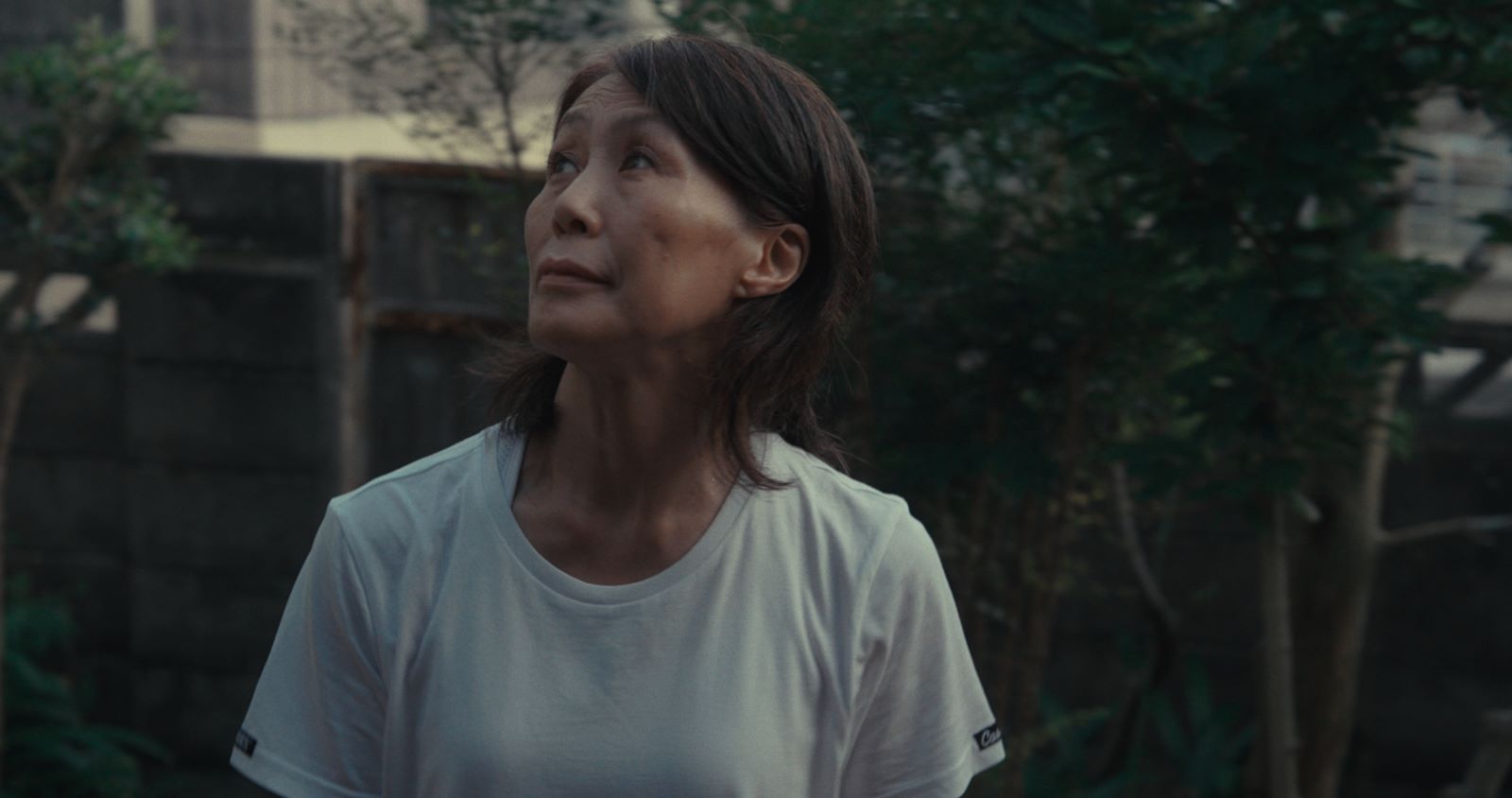“What they were fighting for is not just for women in Afghanistan, but for the world,” says An Unfinished Journey director Aeyliya Husain. “They even say that: ‘It’s not just for us. It’s for all women everywhere.’”
Husain, speaking with An Unfinished Journey director Amie Williams via Zoom ahead of the documentary’s North American premiere at Hot Docs, observes the universal significance of the efforts made by the Afghan women at the heart of the film. An Unfinished Journey observes the plights of four Afghan women—Homaira Ayubi, Zefnoon Safi, Nargis Nehan, and Nilofar Moradi—as they fight for women’s rights in Afghanistan after resettling in Canada.
Ayubi, Safi, and Nehan bring considerable political weight to the conversations as former members of parliament. Moradi, meanwhile, is a young journalist who also knows too well the risks and rewards of being a woman with a public platform in Taliban-controlled Afghanistan. An Unfinished Journey observes as the women work together to build a network across Canada to raise awareness for the setbacks to women’s rights in Afghanistan after the Taliban took control following the withdrawal of American troops in 2021. They’re fighting for young girls to have an education, a vote, a voice, and a life without fear.
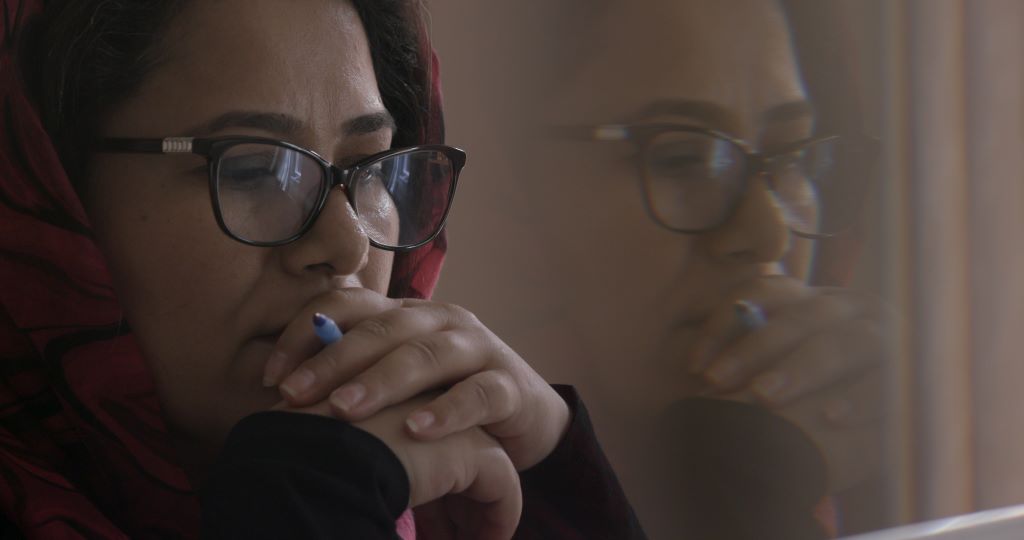
The project began when American filmmaker/journalist Williams (We Are Wisconsin) relocated to Athens, Greece, and witnessed the flood of refugees arriving from Afghanistan. “In the beginning, none of them really wanted to speak because they were afraid for their safety. It was really difficult,” says Williams, calling from Athens. “They were meeting regularly at a women’s shelter/cultural centre called Melissa and sharing how they were feeling, checking on their families. There was some media and reporting going on in terms of who had landed in Greece and how they got there. But there were only a handful of them that would speak directly to media.”
Gradually, though, Williams says she gained the trust of Ayubi, Safi, and Moradai, while Nehan became a later addition, simply by spending time with them and listening to their experiences. Moreover, Williams’ organization GlobalGirl Media, which works to empower women through digital storytelling and activism, featured a number of young Afghan women who had relocated to Greece in 2019 and were familiar with the MPs who had recently arrived.

“These young women were living in camps, some of them in apartments, and we had three on our team who spoke Dari and were able to bond with them because they were also refugees,” says Williams, noting that the MPs received a very different welcome than the younger Afghan women who arrived a few years earlier. “It was interesting at first: there was actually a little tension because there were over 20,000 Afghan refugees in Greece and they’re not treated very well, and they had never been treated very well, but these young women really looked up to other women as MPs and saw them as role models.”

An Unfinished Journey shows audiences why these women command authority as role models when the story follows them to Canada. Ayubi and Nehan land in Toronto, while Moradi resettles in Ottawa, and Safi finds herself outside Calgary. When the protagonists relocated to Canada, Williams reached out to Canadian producer Nadine Pequeneza (Last of the Right Whales), who connected her with Husain. “I understood their culture, I understood their religion. I could navigate with them and hopefully make them feel more comfortable and at ease,” says Husain, whose previous docs include Daughters of the Revolution, about the fight for women’s rights in Iran, and Shooting War, which captured the war in Iraq through a photojournalist’s lens.
“We would coordinate getting from one place to another when the women are in that stage of settling into a new country and all of the challenges that brings, but also how they’re trying to regain their identity and claim their voices again, and then also speak out,” says Husain.
The film observe how the women find different paths as support networks and access to the Afghan community differs city by city. In Toronto, Ayubi and Nehan become leaders at rallies and use their political chops to connect with politicians sympathetic to their plight. They lead Zooms and build networks with fellow Afghan women while learning English and hearing the stories of others who dream of going home. In Ottawa, Moradi raises her family while checking in at Carleton University to help get back in front of the camera as a journalist.
Isolated in Calgary, however, Safi struggles to thrive and eventually retreats, homesick for the family and life she left behind. “She [Safi] didn’t know English, although her children knew English and a couple of them were quite fluent, so you can see in that scene how she feels quite disoriented and alienated in this environment,” says Husain. “There’s a lot of politics involved and some Afghans were blaming the former governments for letting their country down, so she was isolating herself. She was also going through a lot of internal struggles because two of her daughters were left behind.”
Williams adds that observing Safi and filming her in isolation showed the impact that political engagement on the Canadian side has for newcomers. “I was there filming when she called the local senator who didn’t return her calls,” notes Williams. “She eventually got through to some handler who said, ‘Oh, we’ll set up a meeting.’ The meeting never materialised. We also filmed a meeting with an NGO that was full of promises that never came forth.” By observing these four women, the film poignantly illustrates the impact of support networks and community for refugees arriving in Canada.
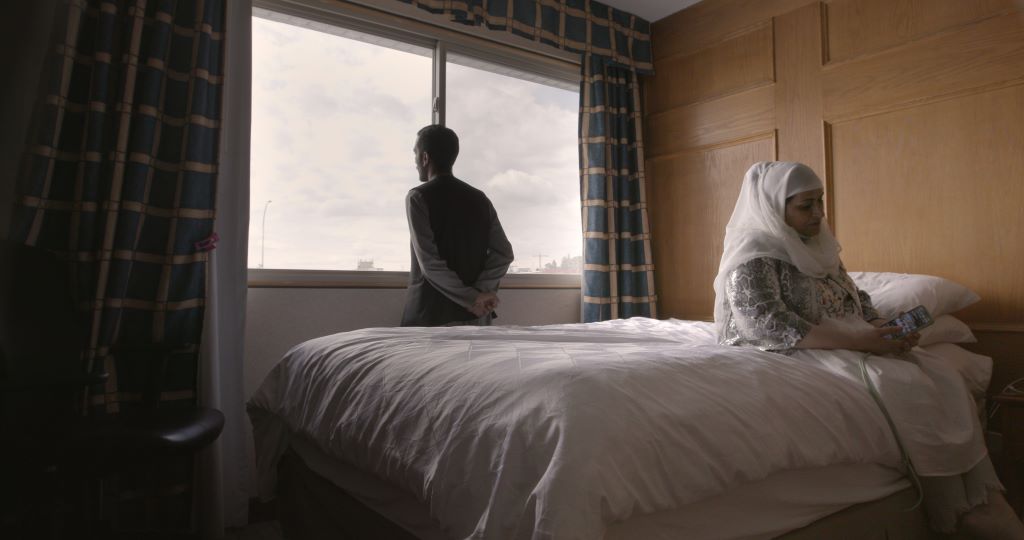
Meetings in Toronto and Ottawa, however, see Ayubi, Nehan, and Moradi mobilize support for the women of Afghanistan. They call upon the Canadian government to put its feminist foreign policy into action, all the while observing heartbreaking reports on the news about attacks back home on girls’ schools.
The strength the film observes in these women challenges the simplified stereotypes of people from the Middle East that western media and films too often perpetuate. “When it comes to women and men from the Middle East, the women are always seen as victims, as oppressed. That they have to be saved,” observes Husain. “Men are always seen as very angry, hostile, and violent. These are really dangerous stereotypes, and this is really damaging and harmful for people from that part of the world. Even for those of us who live in this part of the world, it’s not safe.”
Challenging that image came naturally with the stories they followed. “I think these women don’t know those stereotypes,” says Husain. “They just presented themselves as who they are.”
An Unfinished Journey intercuts the vérité scenes of the present with archival footage of the women during their time in office in Afghanistan. They command authority on the campaign trails, deliver speeches before rows of soldiers, and thrive as respected members of their communities. Weaving between the past and present, the doc evokes the urgency of their struggle for girls and women back home: having women in leadership positions ensures an equitable future.
“Meeting these women taught me the importance of women’s political power and the importance of voting for women in political office, both at the local level and national level, and how critical that is to protecting women’s rights,” says Williams. “We have to have women in these positions.”
Husain, moreover, notes that it’s important not to conflate the fight for women’s rights with culture. Taliban aside, Afghanistan has a long history of women’s rights of which these protagonists are a part. “People don’t realise the long history of activism that’s been happening in Afghanistan and even in Iran,” says Husain. “It’s over a hundred years that women have been active and fighting for their rights. Afghan women had the right to vote before a year before American women had the right to vote. There’s a long history of activism embedded in the country and with the women there.”
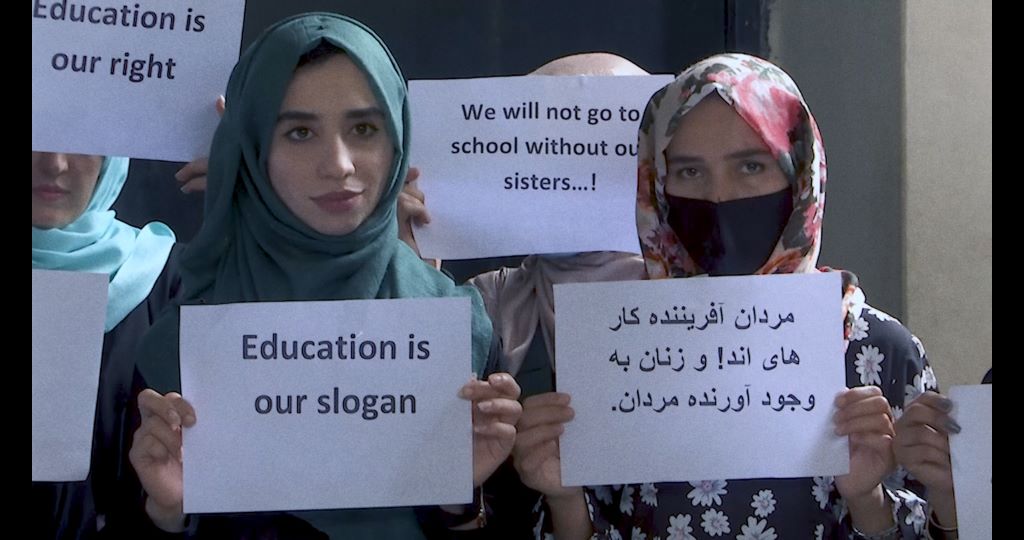
As the characters connect with women in Canada, moreover, An Unfinished Journey finds a shared fight as the West sees rollbacks of its own for women’s rights, most recently with Arizona reverting to an archaic anti-abortion law. It’s a point to which both filmmakers—and, hopefully, everyone in the audience—can relate.
“I left my country when Trump got elected,” says Williams. “I was actually covering his inauguration as a freelance journalist. I was tear-gassed covering the protests at his inauguration. I’ll never forget that feeling of being teargassed in my own country. With the comments he made about women and his attitude towards women’s rights, I made this decision to leave.” The filmmaker relocated to Athens and hasn’t looked back, using her network to support a new generation of women activists.
The directors hope that the universality of An Unfinished Journey will assist the codification of gender apartheid in international law. Husain notes that a recent screening in Canadian Parliament could help bring that change. “We had a screening with senators who are pushing for this and pushing Canada to actually make a statement. We want to do that with other countries as well.”
For general audiences, though, the filmmakers hope that women and men alike recognize how Ayubi, Safi, Nehan, and Moradi serve as role models for their children, but also for the next generation that needs to keep alive their activist spirit. “Nilofar models for her son and her mother was politically active, so she was taken to events and meetings with her mother,” says Williams. “She was inspired by her mother, so there’s a lineage and you can see it, I often wonder why women run for political office. Where do they get their inspiration and why do they choose it? There’s a through-line there from women.”
An Unfinished Journey has its North American premiere at Hot Docs.




